Media Working Group
RCCE and Media Subgroup
THE WORKING GROUP
Media – from print, radio and TV to on-line – plays an important role in building understanding about the challenges people in different situations and contexts can and do face during a pandemic, and can facilitate conversations on how best to respond to these. Media content can provide support, challenge misinformation, and help people to take positive actions for themselves and others. It helps people connect with each other, hold responders and leaders to account, and provides the opportunity to switch off from the pandemic when needed.
The COVID-19 “infodemic” has highlighted the way in which people need information while also feeling overwhelmed by it. Sometimes information from another part of the world reaches people faster than the decisions made locally. Reliable information and misinformation are also shared through the same channels, which can make it hard for people to determine who and what to trust, what actions to take, and what actions not to take. Local, national and international media can help people to navigate this, especially during times of crisis.
The Media Working Group was created to help strengthen the role of media and communication in the COVID-19 response, and as part of future pandemic prevention and response efforts.
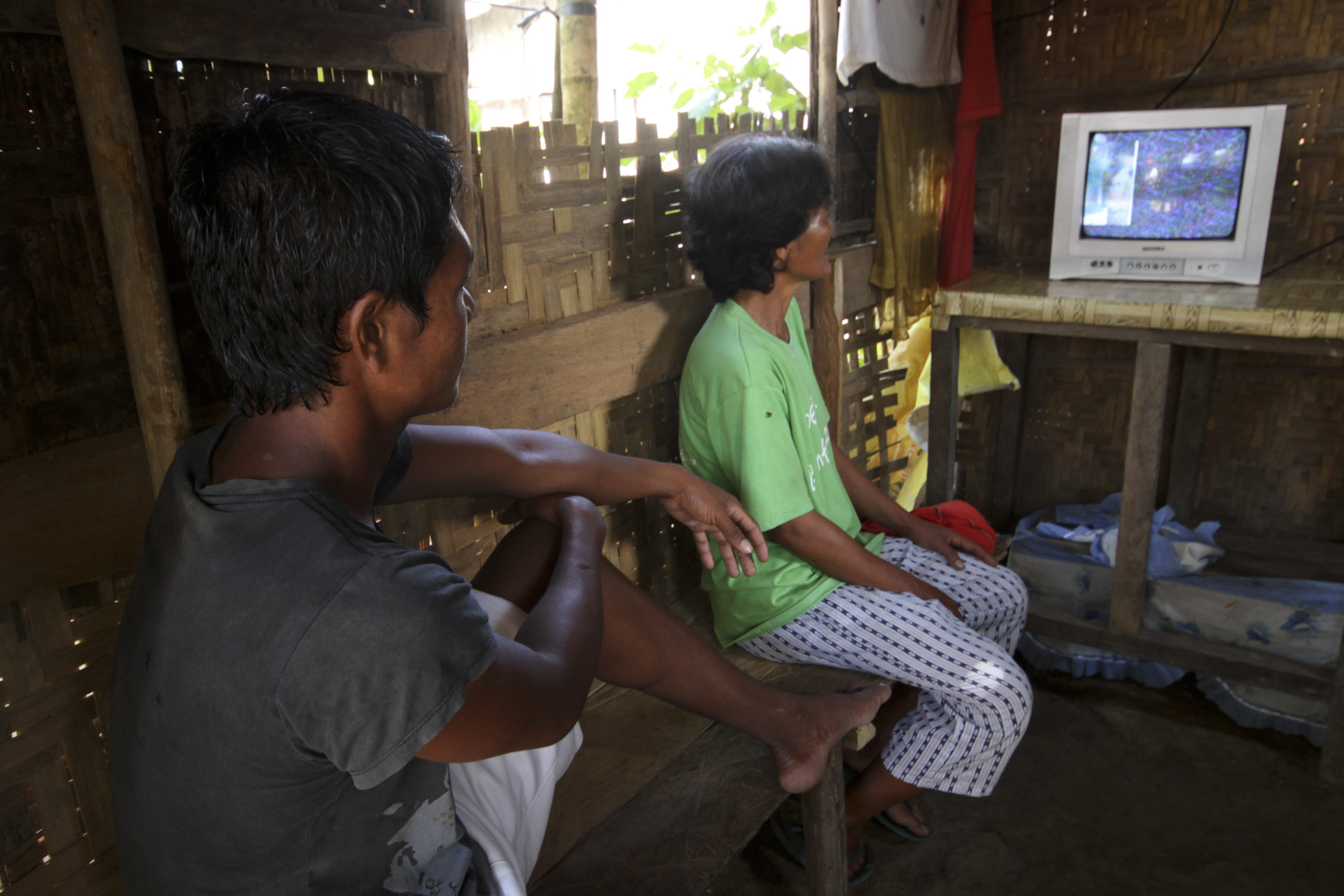
OBJECTIVES
Sharing tools
Increase access to tools and resources for media partners on the pandemic, response and infodemic management. Promote accuracy and communication best practice.
Promote the role of Media
Increase understanding amongst RCCE partners of the role media and communication in pandemic response and infodemic management.
Decision making
Improve understanding amongst donors and decision makers of the role of media and communication within the RCCE mechanism as part of pandemic and infodemic response.
RESOURCES FOR MEDIA
Communicating in response to the COVID-19 pandemic
Projects, support and training:
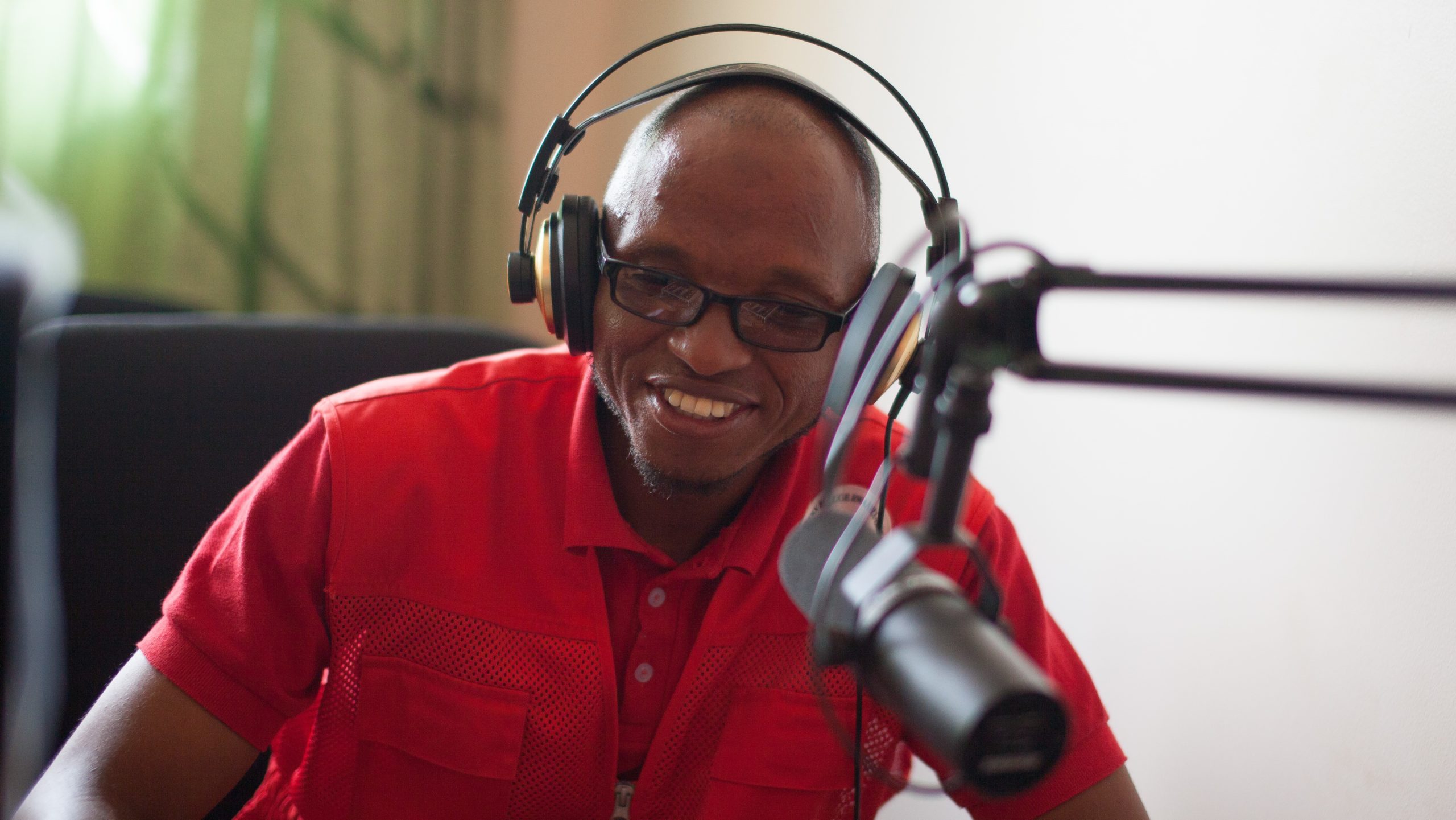
LINKS
Internews: Infohygiene in Times of Pandemics
BBC Media Action : the New coronavirus and COVID-19 handbook for Media
Updated handbook for media on SARS-CoV-2 coronavirus and COVID-19 – additional resources and training on the last couple of pages:
BBC Media Action : Response to COVID-19
First Draft
Resources and training on COVID-19 and infodemic management
Foundation Hirondelle
Journalism, training and resource
Health information and statistics
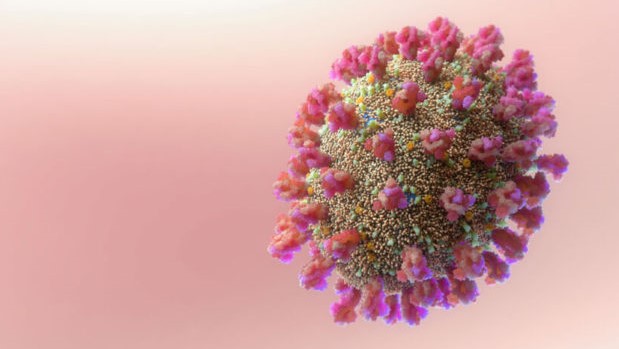
Hygiene Hub
Resources and a chat function to ask questions about the coronavirus and COVID-19
WHO: COVID-19
Fact sheets, advice for the public, infographics, Science in 5
WHO: COVID-19 Dashboard
Dashboard for every country – infection rates, death rates, vaccine roll out and uptake
John Hopkins University: COVID-19 Dashboard
Dashboard for every country – infection rates, death rates, vaccine roll out and uptake
WHO: Early AI-supported Response with Social Listening
Social listening data, tracking the infodemic
Infodemic Management
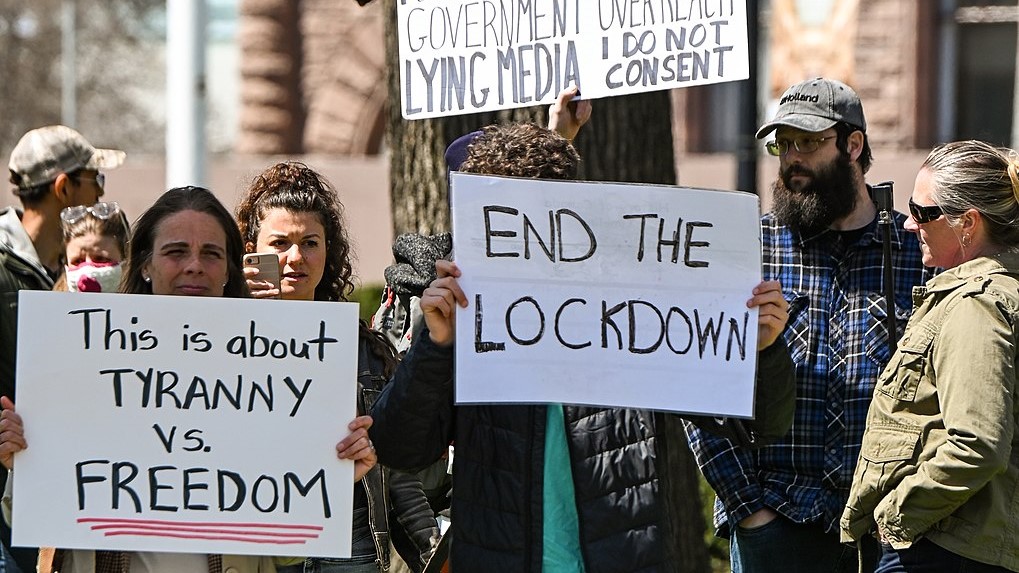
WHO: understanding the infodemic
Africa Infodemic Response Alliance
WHO: COVID-19 Dashboard
Dashboard for every country – infection rates, death rates, vaccine roll out and uptake
First Draft
Tips, advice and training for journalists addressing misinformation, reporting on the pandemic and more
Africa Check
Fact-checking for Africa regions
KNOWLEDGE HUB
Internews Community Engagement & the Media
Local Media and Community Engagement in Humanitarian Settings
Community engagement hub
IFRC’s documentation, guidance and tools on engaging community for Outbreak Response
Save the Children Resources Hub
Save the Children’s strategies for vaccination uptake in multiple languages and contexts
TRAINING
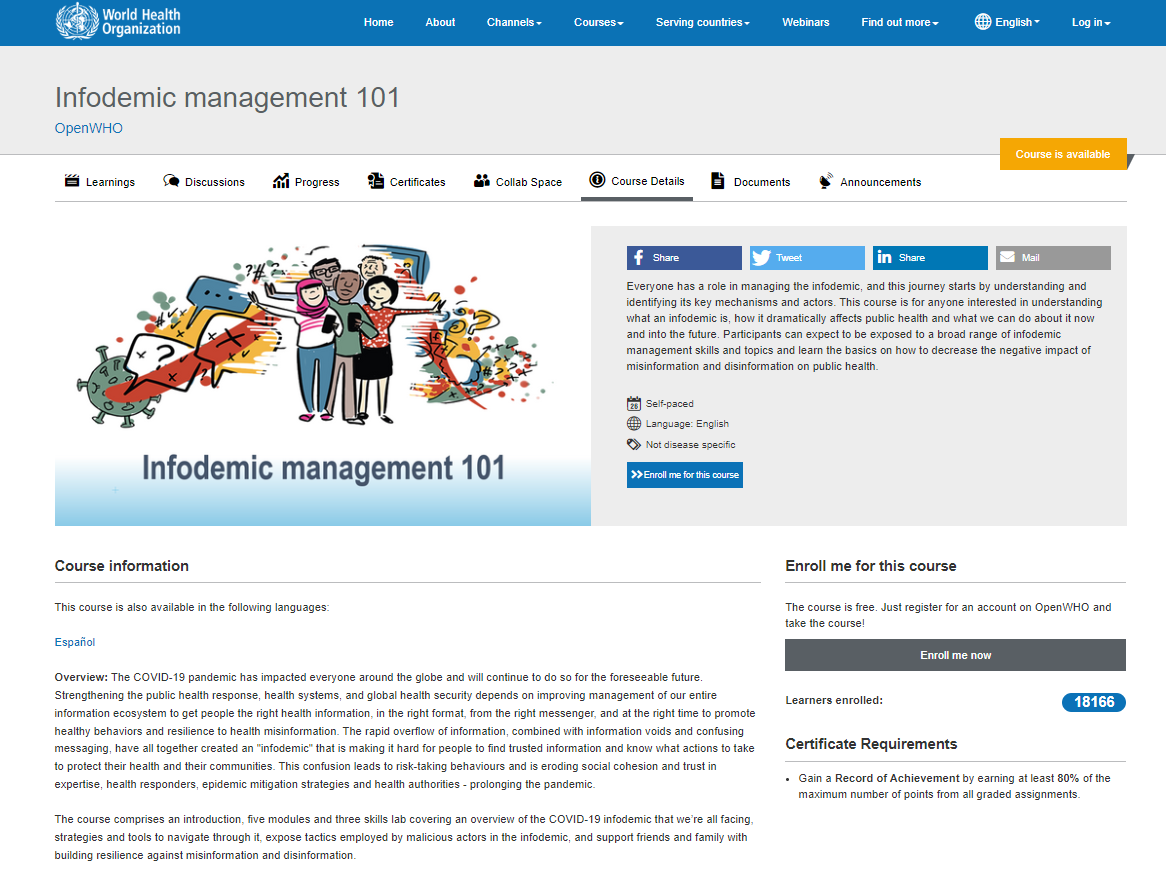
Infodemic management 101
OpenWHO
Read more
The course comprises an introduction, five modules and three skills lab covering an overview of the COVID-19 infodemic that we’re all facing, strategies and tools to navigate through it, expose tactics employed by malicious actors in the infodemic, and support friends and family with building resilience against misinformation and disinformation.
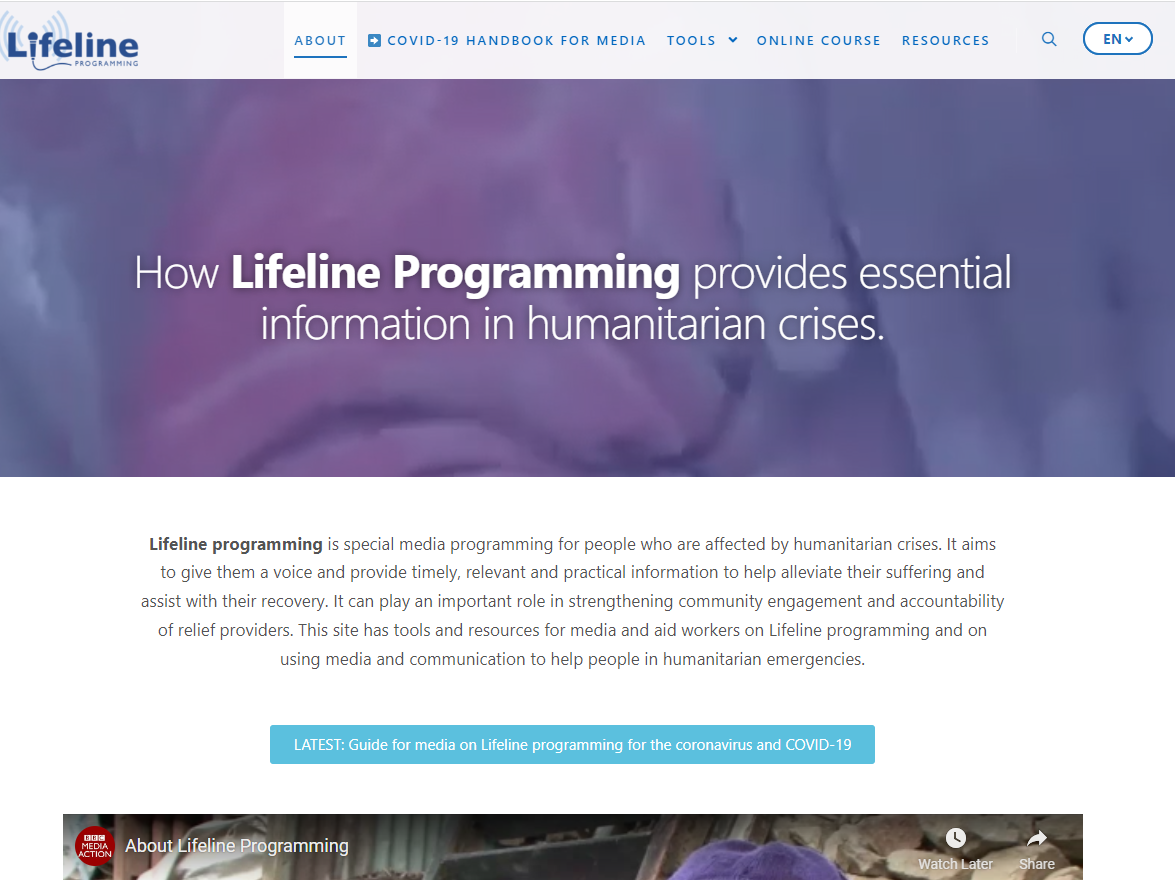
Lifeline communication
BBC Media Action
Read more
Lifeline programming is special media programming for people who are affected by humanitarian crises. It aims to give them a voice and provide timely, relevant and practical information to help alleviate their suffering and assist with their recovery. It can play an important role in strengthening community engagement and accountability of relief providers. This site has tools and resources for media and aid workers on Lifeline programming and on using media and communication to help people in humanitarian emergencies.
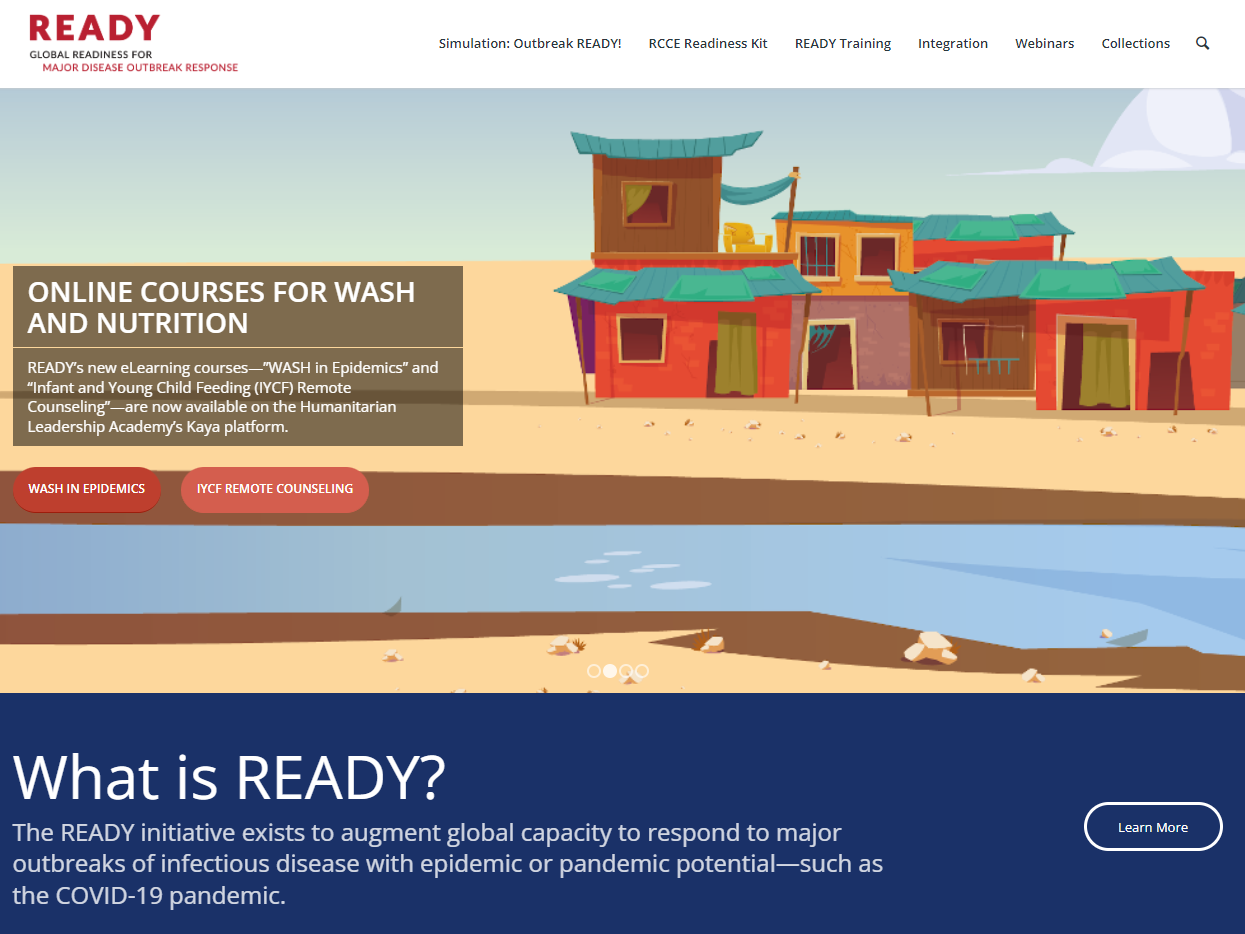
READY Initiative Online Courses
READY Initiative
Read more
READY’s trainings equip learners with skills and approaches to use in planning and delivering effective outbreak response in humanitarian settings

